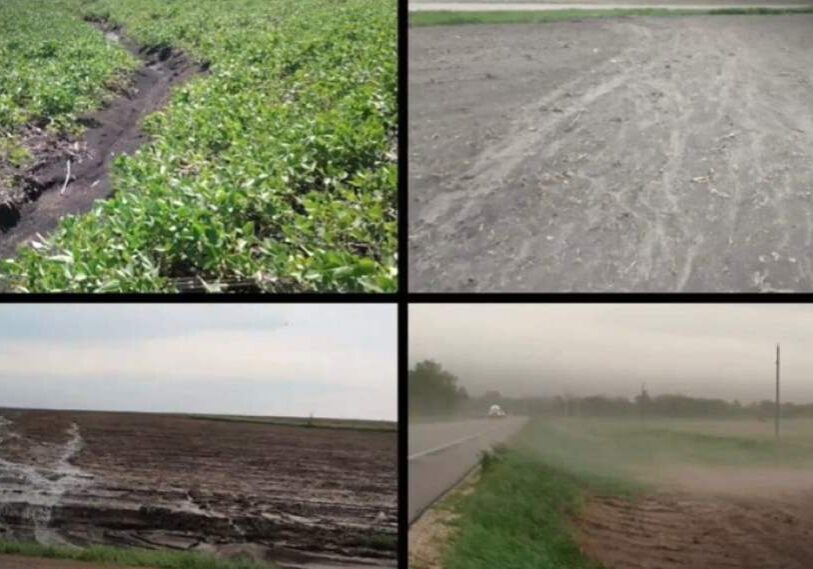Nitrate and Water Issue Proposals Addressed by 2024 Minnesota Legislature

May 23, 2024 UPDATE: The 2024 Minnesota Legislature took action on several fronts regarding southeast Minnesota’s ongoing drinking water and private well concerns. Its “omnibus bill”—passed on May 19, 2024—includes the following in Article 37 on Agriculture Appropriations. Section 2, Department of Agriculture; Subsection 2 (o) (page 584.18 of this omnibus bill PDF): “Protection Services: (Approved) $2,800,000 for nitrate home water treatment, including reverse osmosis, for private drinking-water wells with nitrate in excess of the maximum contaminant level of ten milligrams per liter and located in Dodge, Fillmore, Goodhue, Houston, Mower, Olmsted, Wabasha, or Winona County. “The commissioner must prioritize households at or below 300 percent of the federal poverty guideline and households with infants or pregnant individuals. The commissioner may also use this appropriation for education, outreach, and technical assistance to homeowners. “The commissioner of agriculture may transfer money to the commissioner of health to establish and administer a mitigation program for contaminated wells located in Dodge, Fillmore, Goodhue, Houston, Mower, Olmsted, Wabasha, or Winona County. This is a onetime appropriation and is available until June 30, 2027.” Additionally, according to the Minnesota Land Stewardship Project’s 2024 Minnesota Legislative Session Wrap-Up, the 2024 legislature also approved the following to address southeast Minnesota’s water quality issues: Root River Current will continue to update developments through its own reporting and postings from other media sources. Root River Current’s Land & Water page has background stories on this topic. (This article was originally posted on March 21, 2024)
ST. PAUL — A Minnesota House committee advanced a plan in February to tax fertilizer and use the proceeds to deliver clean drinking water to areas affected by farm pollution.
The House agriculture committee voted to advance the fertilizer tax bill, HF4135, authored by Rep. Rick Hansen, DFL-South St. Paul. It was referred to the House environment committee, which Hansen chairs. (Editor update: At its March 19, 2024 meeting, HF4135 was laid over by the Environment and Natural Resources Finance and Policy committee for possible inclusion in the Environment and Natural Resources Finance and Policy Committee omnibus bill. Updates on the bill’s status can be found here.)
HF4135 still needs to overcome significant opposition — especially from the influential farm lobby — if it’s to become law.
Minnesota state agencies must take action to address farm pollution in southeast Minnesota, or federal authorities have warned they’ll consider enforcement action.
Lawmakers on opposite sides of the aisle have proposed two potential solutions to the issue: one largely in line with the state’s current, farmer-approved approach — encouraging farmers to voluntarily implement practices to reduce fertilizer runoff — and another, the fertilizer tax, which would shift the state’s approach to nitrate pollution by placing the cost burden on farmers.
Nitrates are a byproduct of commercial fertilizer and livestock manure, and water polluted with nitrates is a threat to human health. Nitrate pollution is especially prevalent in southeast Minnesota, where the terrain quickly shuttles surface water to underground aquifers.
Also making its way through the committee process is a farm lobby-approved proposal, HF4044, authored by Rep. Steven Jacob, R-Altura. Jacob’s bill would add a tax credit to the benefits already available for farmers who participate in the existing Minnesota Agricultural Water Quality Certification Program, which certifies producers who take measures to reduce nitrate pollution and prioritizes them in technical and financial assistance programs. (Updates on this bill’s status can be found here.)

Dawn Bernau, Minnesota Department of Agriculture’s Nutrient Management Initiative lead for southeast Minnesota (left) works with Fillmore Soil and Water Conservation District technician Sara West (center), and Farmers Win Cooperative agronomists to support landowners Glen and Melinda Groth in their effort to increase nitrogen use efficiency on their farm. Here, Bernau takes soil plant analysis development readings (a diagnostic tool to measure crop nitrogen status) and shares results related to nitrogen deficiency with Glen Groth (right). (Photo courtesy Dawn Bernau)
The Hansen legislation would levy a 99-cent fee per ton of nitrogen fertilizer sold to fund an assistance program for people whose private wells are polluted. The fee would increase if the amount of fertilizer sold in the state also increases.
A slew of farm groups testified against the fertilizer tax, including the Minnesota Farmers Union, Minnesota Farm Bureau and the Minnesota Corn Growers’ Association.
“I recognize there is great opposition to this bill. I expect that,” said Hansen, who served on a nitrate pollution task force 35 years ago.
Republicans on the committee expressed concern with adding another cost to farmers’ bottom line, as farm revenue and commodity prices are decreasing.
“Farmers are doing the best they can. Techniques are improving,” said Rep. Paul Anderson, R-Starbuck. “I would much rather encourage the incentive approach to this rather than the required fee.”
Nearly three-fourths of the nitrogen in Minnesota surface water originates from cropland, according to data from the Minnesota Pollution Control Agency.
Drinking water with high levels of nitrate can cause methemoglobinemia or “blue baby syndrome,” a potentially life-threatening condition affecting the blood’s ability to carry oxygen throughout the body. Nitrates have also been linked to thyroid disease and certain cancers.
The Environmental Protection Agency issued a letter in November to the Minnesota agencies tasked with addressing agriculture and pollution — MPCA and the state departments of health and agriculture — stating the state authorities aren’t doing enough to address nitrate pollution.
The Minnesota Department of Agriculture has long offered programs that reward farmers for voluntarily adopting practices that reduce nitrogen loss. In addition to the Minnesota Agricultural Water Quality Certification Program, the state offers grants and loans for farmers to grow cover crops, obtain technology to improve soil health and implement best management practices.
Additional Articles On Water Quality Published By Root River Current: Details about this story have also been posted by the League of Women Voters of Minnesota. Additional reporting and perspectives on different approaches to addressing the nitrate issue can be found in this article by MinnPost, published March 22, 2024. Minneapolis StarTribune: Southeastern Minnesotans worry over state water pollution response, published April 6, 2024 (access may be limited to StarTribune subscribers).








